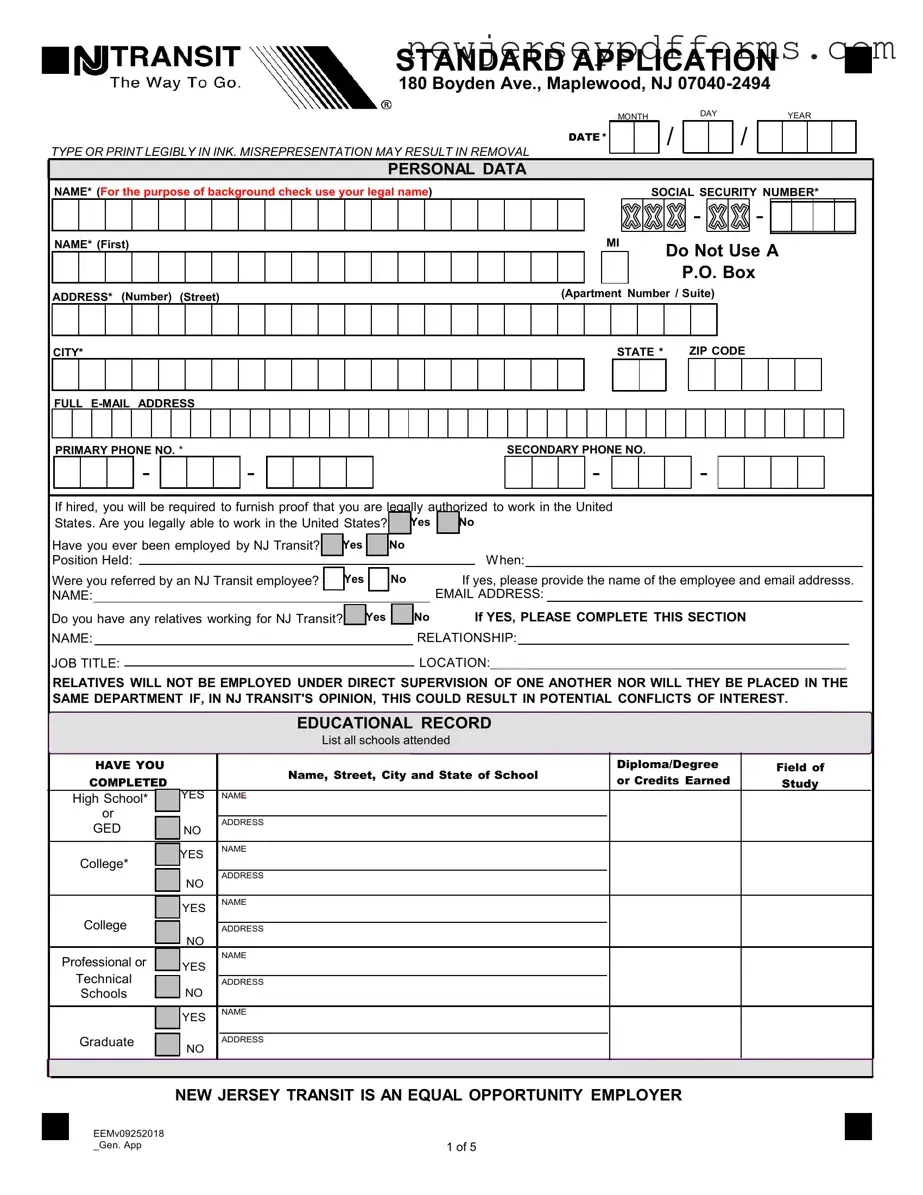What is the purpose of the NJ Application Employment form?
The NJ Application Employment form is designed to collect essential information from applicants seeking employment with NJ Transit. It gathers personal details, employment history, educational background, and skills to help assess qualifications for various job positions.
Who should fill out the application?
Anyone interested in applying for a job at NJ Transit should complete this application. It is important to provide accurate and complete information to ensure the application is processed effectively.
What personal information is required on the form?
Applicants must provide their legal name, Social Security number, address, email, and phone numbers. This information is necessary for background checks and to confirm identity and contact details.
Is it necessary to have a driver's license?
Some positions may require a driver's license. If applicable, you will need to provide your driver's license number, state, class, and any endorsements. Ensure that your license is not currently suspended or revoked.
What if I have relatives working for NJ Transit?
If you have relatives employed by NJ Transit, you must disclose their names, relationships, job titles, and locations. NJ Transit has policies to prevent conflicts of interest, ensuring that relatives do not work under each other's direct supervision.
How should I list my employment history?
List your employment history for the past five years, starting with your most recent job. Include the employer's name, address, job title, duties, and reasons for leaving. Complete and accurate information is crucial for verification purposes.
What if I have gaps in my employment history?
It is important to be honest about any gaps in your employment history. You can explain these gaps in the application or during the interview process. Transparency helps build trust with potential employers.
How does NJ Transit handle equal opportunity employment?
NJ Transit is committed to being an equal opportunity employer. They do not discriminate based on race, color, creed, sex, age, national origin, religion, veteran status, handicap, sexual orientation, or any other protected status. All applicants are encouraged to apply.
What happens after I submit my application?
After submitting your application, NJ Transit will review it. If your qualifications match their needs, you may be contacted for an interview. All employment offers are contingent upon a successful background check and other pre-employment processes.

